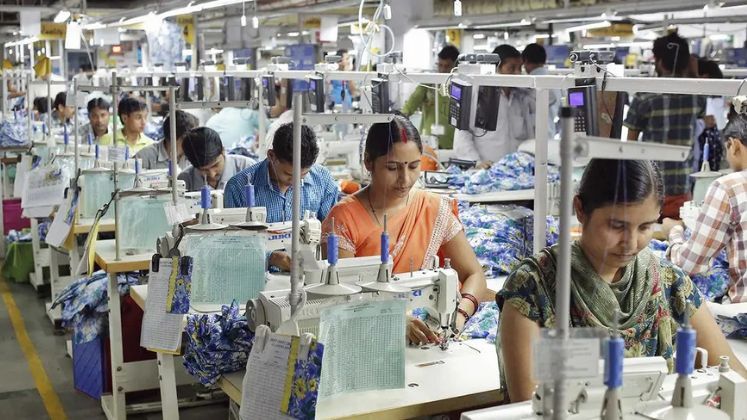
Tamil Nadu’s garment industry, which employs more than two million workers, is facing mounting distress following an 8% decline in exports to the United States during the first half of FY ’26. The downturn, the sharpest since the pandemic, comes amid escalating tariff threats from Washington that threaten to undermine the state’s export-driven textile economy.
According to data released by the Apparel Export Promotion Council (AEPC) on Wednesday, exports to the United States — which account for 35% of Tamil Nadu’s US $ 4.5 billion annual apparel shipments — fell to US $ 1.6 billion between April and September, compared with US $ 1.74 billion in the same period last year. The slump coincides with President-elect Donald Trump’s renewed push for “reciprocal tariffs” aimed at narrowing America’s US $ 36 billion textile trade deficit with India, including a proposed 25% duty on ready-made garments to “protect American jobs.”
Chief Minister M.K. Stalin has urged the Union Government to intervene swiftly, warning that unchecked trade barriers could lead to as many as 500,000 job losses across Tamil Nadu’s textile belt, spanning Tirupur, Erode, and Coimbatore. In his appeal to Prime Minister Narendra Modi, submitted through Raj Bhavan, Stalin proposed a Rs. 5,000 crore (US $ 570 million) labour incentive scheme to protect employment and sustain competitiveness. The plan includes Rs. 10,000 monthly top-ups for workers over six months, skill development grants for sustainable textiles, and a 5% export rebate to cushion against potential tariff shocks.
The crisis has struck at the heart of Tamil Nadu’s industrial economy. The state accounts for 40% of India’s 4.5 million-strong apparel workforce and contributes around 15% to its manufacturing GDP. Factories in Coimbatore and Dindigul have reported order cancellations from major American retailers such as Walmart and Gap. Small and medium enterprises — which make up nearly 95% of the state’s 12,000 garment units — are particularly hard hit, facing an estimated 20% cash flow crunch.
A. TradeSakthivel, former AEPC president and Managing Director of Shahi Exports, said that buyers were “hedging against Trump’s tariffs,” and that the industry had already “lost contracts worth Rs. 200 crore (US $ 22.78 million).” Crisil and other trade bodies have warned that if the proposed tariffs are implemented by January 2026, Tamil Nadu’s export costs could rise by 15–20%, wiping out profitability and threatening thousands of smaller exporters.
The Tamil Nadu Spinners Association estimates that the state could suffer annual losses of up to Rs. 8,000 crore (US $ 911 million) if the duties are enforced after the Trump administration’s inauguration. With Tamil Nadu accounting for 60% of India’s cotton garment exports, the state’s exposure to US trade policies remains particularly acute.
The labour impact is already visible. Over 10,000 workers in Namakkal staged a spontaneous protest earlier this week demanding wage hikes and timely salaries, following reports of 120,000 job losses during the second quarter of FY ’26. Trade unions, including the Centre of Indian Trade Unions (CITU), have warned of a potential “social implosion” if employment continues to contract.
Post-pandemic, Tamil Nadu’s apparel sector had staged an 18% rebound in 2024 by pivoting towards fast-moving categories such as athleisure. However, tightening global sustainability standards and rising freight costs have since squeezed margins to around 5%. Industry associations warn that women — who comprise nearly 80% of the garment workforce — are bearing the brunt of the crisis, with dropout rates rising by 12% in rural production clusters.






